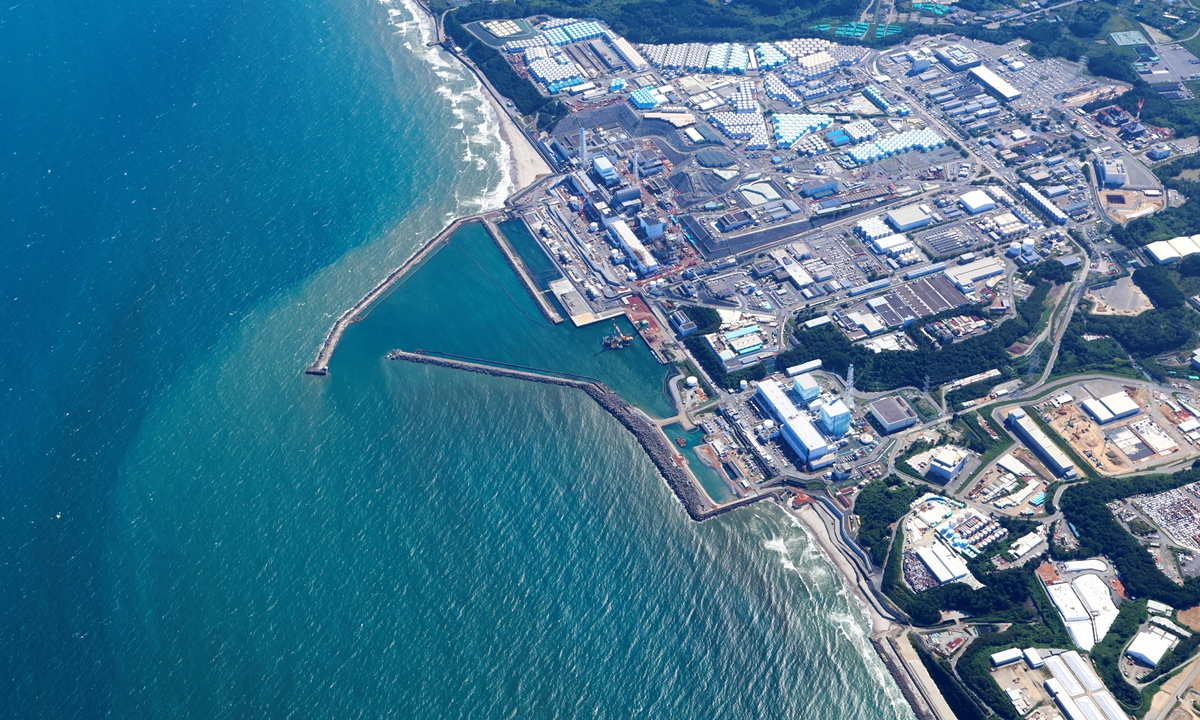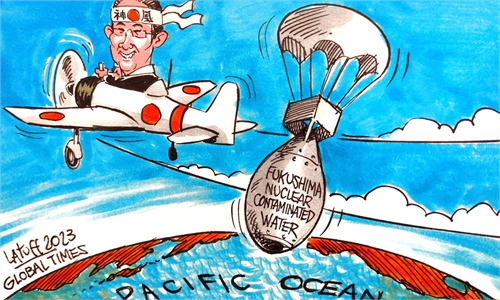Radiation monitoring, import ban reasonable steps to respond Japan’s discharge of nuclear-contaminated water: FM

Chinese Foreign Ministry spokesperson Wang Wenbin Photo: mfa.gov.cn
The Chinese government has the ability and resolve to do everything necessary to protect our national interests and people's health and protect the sound growth of the oceanic fishing sector, Chinese Foreign Ministry spokesperson Wang Wenbin said at a Wednesday press briefing, in response to media reports that said China conducts radiation monitoring of the marine environment in waters under the country's jurisdiction.
Monitoring of the level of radiation in the ocean, emergency measures on aquatic imports from Japan and risk monitoring of nuclear-contamination of aquatic products are all legitimate, reasonable steps to respond to Japan's discharge of nuclear-contaminated water and protect our national interests and public welfare, Wang said.
"The discharge will last decades. Great uncertainty remains as to whether the contaminated water will be up to standard after treatment," said Wang.
Ignoring doubts and strong opposition from the international community and relevant countries, Japan has already begun dumping the Fukushima nuclear-contaminated water, raising international concerns. Tokyo Electric Power Company (TEPCO) is reportedly set to release another 7,800 tons later this month at the earliest, according to the Japan Times.
The discharge of the Fukushima radioactive water is a major nuclear safety issue, as it is an unprecedented artificial release of contaminated water from a nuclear incident into the sea, and there is a lot of uncertainty about the cumulative effect caused by the release of large quantities of radionuclides into the sea, said Liu Jing, vice chairman of the China Atomic Energy Authority, at the General Conference of the International Atomic Energy Agency on Monday, the Xinhua News Agency reported.

Nuclear-contaminated wastewater is being dumped from the TEPCO Fukushima Daiichi nuclear power plant into the ocean. An aerial view showing that the discharge is causing discoloration in Okuma, Fukushima, Japan on August 24, 2023. Photo: VCG
It is important to conduct monitoring and collect evidence, especially data on changes in the numerical values of radioactive material that are affecting the oceans, as all the data submitted so far was collected by Japan itself, Zhang Yanqiang, a professor on law of the sea studies at Dalian Maritime University, told the Global Times on Wednesday.
"Our country can also consider further international cooperation with Pacific Island countries to conduct joint monitoring," Zhang said. On September 15, a Pacific Islands Forum foreign ministers statement on Japan's discharge of nuclear-contaminated wastewater was released, in which they emphasized building regional scientific capacity and monitoring capabilities to assess the well-being of the Pacific maritime ecosystem.
If real damage occurs, legal actions could be considered, Zhang noted.
On September 22, at the general debate of the UN General Assembly, Prime Minister of the Solomon Islands Manasseh Sogavare called on Japan to explore other options to address the nuclear-contaminated wastewater and to immediately stop discharging it into the Pacific Ocean. "If this nuclear wastewater is safe, it should be stored in Japan," he said, according to the website of UN.
Meanwhile, Russia is also mulling a ban on Japanese seafood imports, Reuters reported on Wednesday.

